Descriptions of those who’ve left their mark on hockey often include allusions to a man or woman’s love for the game – their love playing it, watching it, talking about it, absorbing it. As they reflect on their careers, a feeling for some may surface that they always owed the game, that they owed their character and their efforts to their coaches, to their players, to those who sat beside them.
That selflessness was inherent in Jack Bowkus, who firmed the aim and trajectory of Southern California hockey’s reach and passed away on March 28 after a three-year fight with stomach cancer. The legacy he leaves behind is seen clearly through ex-teammates’ testimonials and from those he’d coached and built an amplified Southern California hockey network with as a renowned L.A. Junior Kings head coach and father who strove to set the best examples for his son, Austin.
* * * * *
Helen Alex has had many titles. She’s currently the L.A. Junior Kings Finance Director and the Team Manager of the 18-and-under AAA club, and, in an important moment in the organization, was also a recruiter. In 2007, she and Bowkus, who coached the USHL’s Indiana Ice at the time, were already close through several mutual friends. Bowkus had previously helmed the Orange County-based California Wave program that entrenched Southern California as a scouting locus through the confluence of Bowkus’ coaching and the skilled ability of a booming local player pool driven to play through Wayne Gretzky-inspired fervor. Young children in Southern California who’d learned to skate around the Kings’ run to the 1993 Stanley Cup Final were in their early-to-mid teens during Bowkus’ tenure with the Wave.
Bowkus was particularly proud of his 1989-born group, which won the Kamloops International Bantam Ice Hockey Tournament in 2004 and would go on to place seven 16-year-old rookies on Western Hockey League teams one year later when the typical team in a league dominated by 18, 19 and 20-year-olds usually doesn’t have more than one or two. There was Jonathon Blum in Vancouver, Shane Harper and Jonathan Milhouse in Everett, C.J. Stretch in Kamloops, Colin Long in Kelowna, Ryan Letts in Calgary and Matt Sokol in Medicine Hat, all of whom came together under Bowkus to punch above their weight as a group, taking a number of unexpecting Canadian bantam and midget teams by surprise from 2012-15.
Bowkus, a Michigander who played four seasons for the WHL’s Saskatoon Blades and amassed 100 points his 20-year-old year, had begun the Wave program with Jeff Turcotte and Shawn Pitcher to provide a top-tier local AAA team and reached out again to his “recruiter” after he left Indiana.
Alex, then the director of the Jr. Kings’ board, pushed for Bowkus’ hiring to the organization’s president, Rosemary Voulelikas. “She took my recommendation, he came out, didn’t really need an interview. His whole career, everything he’s always done, he was the right person for the job.”
Bowkus was hired in April, 2007 and over the past 13 years – even remarkably deep into his cancer diagnosis – he coached teams up and down the program’s U14, U16 and U18 spectrum. “He could take any player, and I mean any player, and he could get the best out of them,” Alex said. The mother of former Kamloops Blazer and Colorado Avalanche defenseman Ray Macias, she’s an enduring figure in minor hockey and an empathetic caretaker for a number of young players on the precipice of their hockey careers.
“He rolled the lines. You don’t find a lot of coaches that roll the lines nowadays,” she said. “He rolled the lines all the way through to Christmas. I remember he gave every single player the opportunity to be the best and earn a spot on a AAA team. He built confidence in players who never had any.”
When Bowkus had his stomach removed in a surgery shortly after his diagnosis, Alex joined his family at the hospital and was an intermediary between the coach and his players. That year he was coaching a 14U team. “All I could think about was all these kids texting me, saying, ‘How’s Coach Jack?’ He left such a positive feeling. He left such a positive attitude, a positive way to lead their lives – not just as hockey players, but as citizens.”
It’s a sentiment expressed both verbally and expressively. So many coaches will share that more than anything, the relationship with their players must be built on a two-way bed of trust. There were those moments when he was firm but certainly fair, but the moments that will resonate long beyond his passing will be the way he reached out to his former players well after they’d played their last game for him. “They knew that all they had to do was pick up the phone,” Alex said.
And so they did. Just as Bowkus had run practices and traveled and drew up plays while battling cancer’s war on his body, he was also making sure that as he and the team battled the disease together – as he explained it to his players – and found softer moments, even as a hockey coach, to add some levity. “As sick as he was, on Halloween he got dressed like a clown and ran his practice,” Mark Hardy said.
The former Kings player and assistant coach, Hardy had won rec league championships at Toyota Sports Performance Center alongside him, Kelly Sorensen, Brad Sholl and Ralph Barahona, the Long Beach native and former Ice Dog, before joining the Jr. Kings’ coaching staff. But Hardy hadn’t yet seen that side of minor hockey, the importance of setting an example for teenagers and still finding the ability to lead even during the most difficult times.
In the last month, and just before the world began closing its doors in response to an escalating pandemic, Bowkus was still venturing to find support and grace in the presence of others. He was also still a hockey coach. Just before social gatherings became taboo, he still summoned the strength to visit his former players at a roller rink in El Segundo. It was fitting, because he’d often encouraged his players to play roller hockey to boost their skill and wasn’t known to chide them when their schedules overlapped, as often happens in these parts.
“He was in his wheelchair at that point, and no matter what, he wanted to see those kids, he wanted to be with those kids,” Alex said.
“He told me, ‘You can’t take hockey away from me. Then you’re taking my life away from me.’ He still developed game plans. I mean, he never stopped giving to hockey until the end. That’s how much he loved it.”
* * * * *
Shane Harper was part of a team notoriously instructed – to be diplomatic – by head coach Kevin Constantine not to change out of its equipment for the three-and-a-half-hour bus ride from the Tri-Cities to Everett, Washington following a poor 2006 preseason performance. This, one would think, would give him a fairly good starting point on coaching authority and organizational discipline.And even he thought Jack Bowkus to be “extremely demanding.”
Words like that carry weight from Harper, whose conditioning regimen and self-discipline even as a teenager were highly advanced and prepared him well for a professional career. “I literally had to kick him out of the weight room on Thanksgiving Day,” a former athletic trainer said of him.
There are plenty of influences who’ve stoked and refined that constitution, among them Bowkus, his former California Wave coach. “I still think he’s the best coach I’ve ever had,” said Harper, a Valencia native who also played for Craig Hartsburg in Everett and Gerard Gallant in Florida.
But the union between Harper’s group of ‘89-born players and Bowkus was special.
“He was, honestly, just so instrumental in my career, and while he coached us, we were always a bit intimidated of him, a bit scared of him, because he demanded so much and he was such a hard-nosed coach. Still, to this day, we joke around, you hear players now complaining about coaches yelling at them or being too hard on them and I still laugh with my parents, guys that I played with, like are you kidding me?” Harper said.
As Alex shared, he was known for running a “tight ship.”
“I’ve heard it all from Jack, literally everything, and I’ve had some really difficult coaches after that, but it never really affected me like some players,” Harper continued. “I owe a lot to him. He really did prepare us for that next step and it’s kind of unbelievable what he was able to do in three years coaching us.”
As in: From 2002-05, a talented group of California teenagers hung with the best teams in their age groups by virtue of the tremendous chemistry they’d built, aided in part by Bowkus’ decision to expand their competitive circles by facing top competition. “The ’89 birth year team used to go up to Toronto and play against John Tavares and (Phil) Kessel and all these guys, and they would go back-and-forth in every tournament, and they were always in the finals together,” said Nick Vachon, a close friend for years who has coached alongside Bowkus for the last four and understands the impact that California Wave founders Bowkus, Jeff Turcotte and Shawn Pitcher had on developing and growing the local pool. “Colleges, junior programs, they’re all scouting our kids. Our kids are getting drafted and getting to play all over, and it all started with those guys.”
And so they traveled. To Vancouver. To Medicine Hat. To Prince Albert. “We were going to tournaments where we didn’t even know where we were, we had no idea until we went up there,” Harper said.
Defenseman Jonathon Blum, a 2007 Nashville first round pick, may have been the emerging centerpiece, but the offensive skill inherent in Harper, Colin Long and C.J. Stretch’s games and many others helped define the group. Their hands, their feet and their repetitions were all aided by their seamless transition between roller and ice hockey and weaponized by Bowkus. “He encouraged us to make plays, but also was extremely demanding, so I don’t think I would have been nearly as prepared to go to the WHL if I hadn’t been coached by him for the three years prior,” Harper said.
“We bag skated almost every practice, so that work ethic, coming to the rink almost knowing what we were going to do and preparing for it helped me build my work ethic on and off the ice. I pride myself as being a hard worker, and you don’t really think about that on the daily, but you have to get that from somewhere, so it comes back to those times when as a young person, you start to develop those habits and you definitely have to think that came a lot from Jack. At 13, 14, 15, hockey’s all that matters, so that was the big influence in my life at that time.”
When Harper was 23, and ready to resume his career with Adirondack in the Philadelphia organization, it was Bowkus who reached out and invited him to the late-summer pro skates in El Segundo that included a mix of L.A.-based National Hockey League players and several passers-through. Sidney Crosby, who’d spent summers in Santa Monica and Brentwood, was among the pros to skate under Bowkus.
“I wish I was able to talk to him a little bit more, before the end, it’s so unfortunate and so sad, but it’s really awesome to see how much support and how much people are talking about him right now. He’s getting the credit he deserves,” Harper said. “He broadened our horizons and showed us there was more than just hockey in California. Funny enough, guys were playing in [the WHL] one year later – it was incredible.”
After the 1989’s, there was 1990-born Mitch Wahl, a second-round Calgary pick, 1991-born Mitch Callahan, a sixth round Detroit pick, and then Stanley Cup champions Beau Bennett and Chad Ruhwedel and goalie Thatcher Demko and Kailer and Keanu Yamamoto and so on and so on. Six players with California ties were selected in the 2017 NHL Draft, four of whom came directly from the Jr. Kings program. In 2018, one player was drafted from the Jr. Kings, followed by three more in 2019.
They just keep coming.
And as they export young hockey players into the world, they’re also importing love, condolences and memories from managers, coaches, players, fans, former teammates and confidants. “If they ever wanted a true evaluation of a player, they would call Jack,” Alex said.
* * * * *
“Just to tell you, he’s the toughest guy that I know,” said Nick Vachon. The Jr. Kings’ General Manager of Hockey Operations, his friendship with Jack Bowkus extended well, well beyond their time coaching together over the past four seasons. During Bowkus’ battle he remained a close figure – personally and professionally – with Bowkus and his son, Austin.
That toughness provided what therapy it could early into his cancer diagnosis and after the September, 2018 surgery to remove his stomach. And because Bowkus was a hockey player, obviously there were odds to defy. “They told him it’d take four-to-six months of recovery time. ‘Take your time,” Vachon said, sharing the doctors’ advice. “He was back on the ice in 10 days. He was back, literally on the ice, in skates, in 10 days, leading a clinic. What pushed him was to be with the kids, and he just pushed through it.”
But behind the scenes, Vachon knew of the intense pain that his friend was going through, and after the cancer had spread and made every aspect of his life difficult, was part of a coaching staff that expanded to accommodate Bowkus’ 21-year-old son, Austin, who played for the Jr. Kings and the Yarmouth Mariners in the Maritime Junior Hockey League and spent the second half of the 2019-20 behind the same bench as his father. “When we traveled, Austin actually joined our coaching staff this year around Christmas so that he could not only help us work with the kids, but also be with his dad and on the road with us and really be a big part of it,” Vachon said.
The relationship between Jack and Austin stirs strong emotions. “One thing that stuck with me was a year and a half ago when he first got his cancer and then he beat it and he worked closely with the Tour de Pier foundation to raise funding for others, there was a video made of him at the time,” Vachon said. “He said that he felt he hadn’t been able to teach his son – like really, really teach his son everything – and was so happy that he had gotten through it the first time and was able to do that.”
In a video on the Tour de Pier site, Jack spoke about the importance of forging ahead with his “13-year-olds” and beating cancer together as a team.
“In all my years coaching, every team goes through adversity. Being the leader of the group, preaching ‘you go through adversity, you’ve got to fight through it,’ well, I can’t just preach it. I have to live it,” Jack said, sharing that he was inspired to fight as hard as he could continue to set an example for his son.
“I just thought that was amazing, because he was close with Austin and that was the one thing for him, he was so grateful that he beat cancer the first time that he could spend more time with his son,” Vachon said.
And so there they were in dressing rooms, on planes, on skates, in tournaments and at rinks, as they should be, and as it always had been.
— Jeff Moeller contributed to this story.

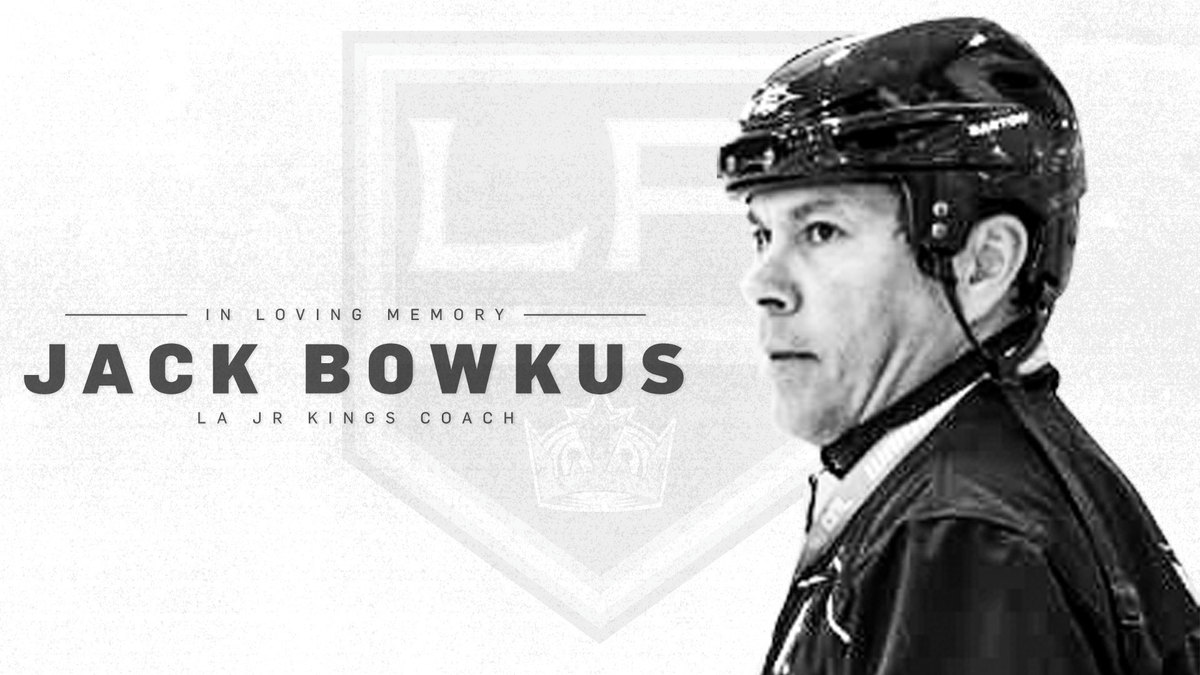
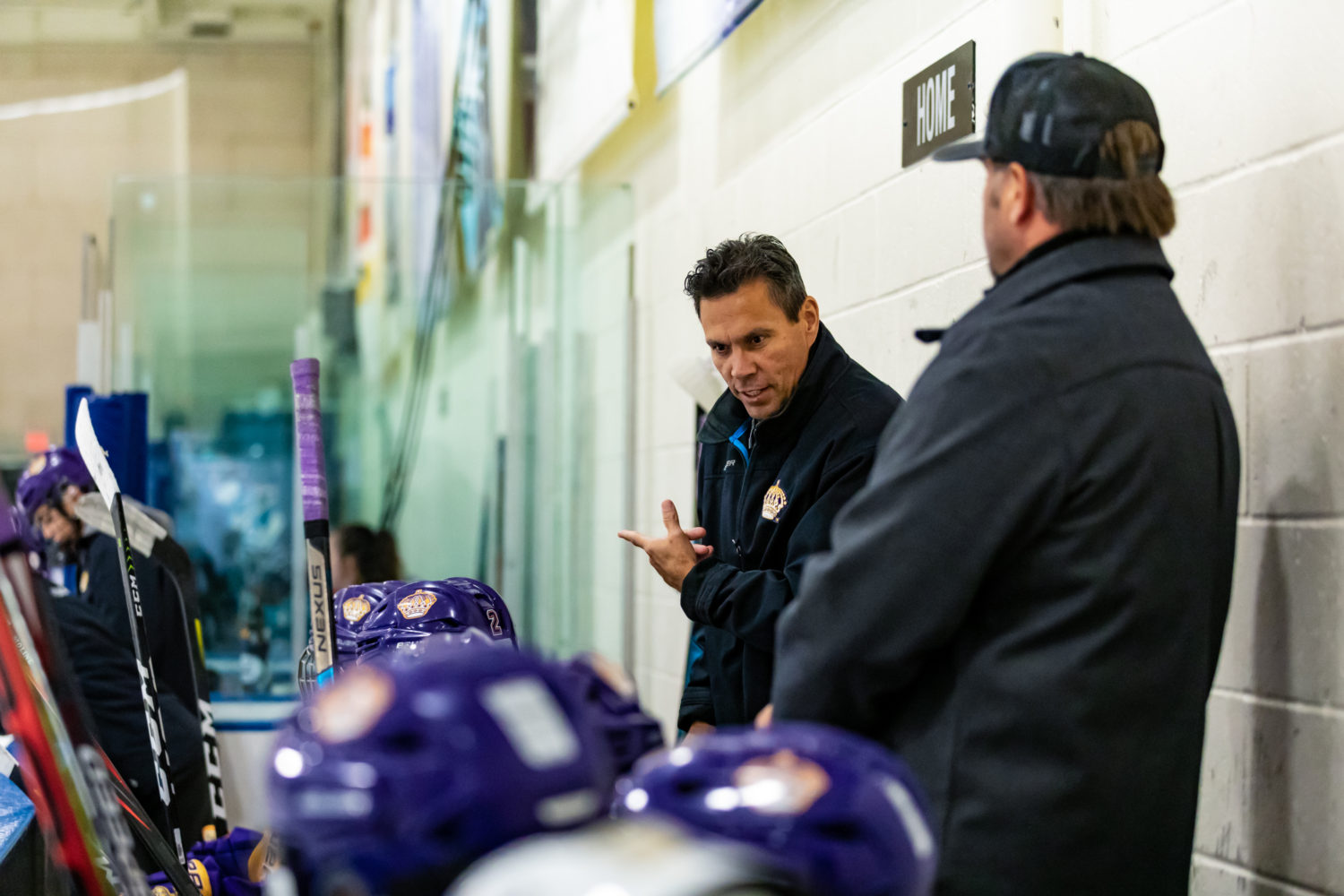
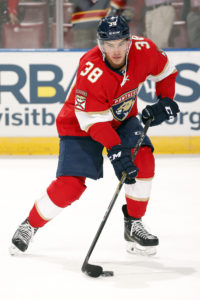
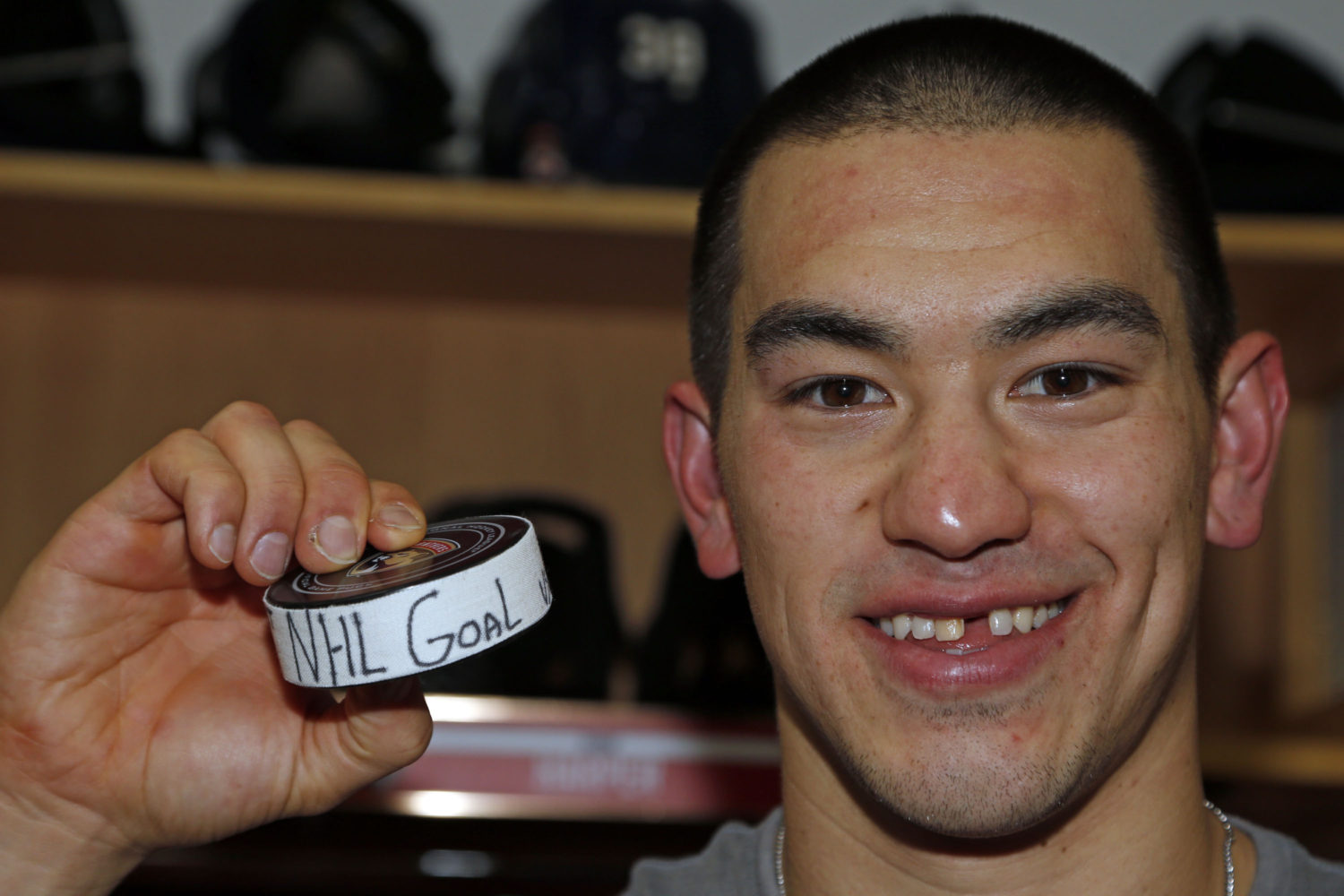
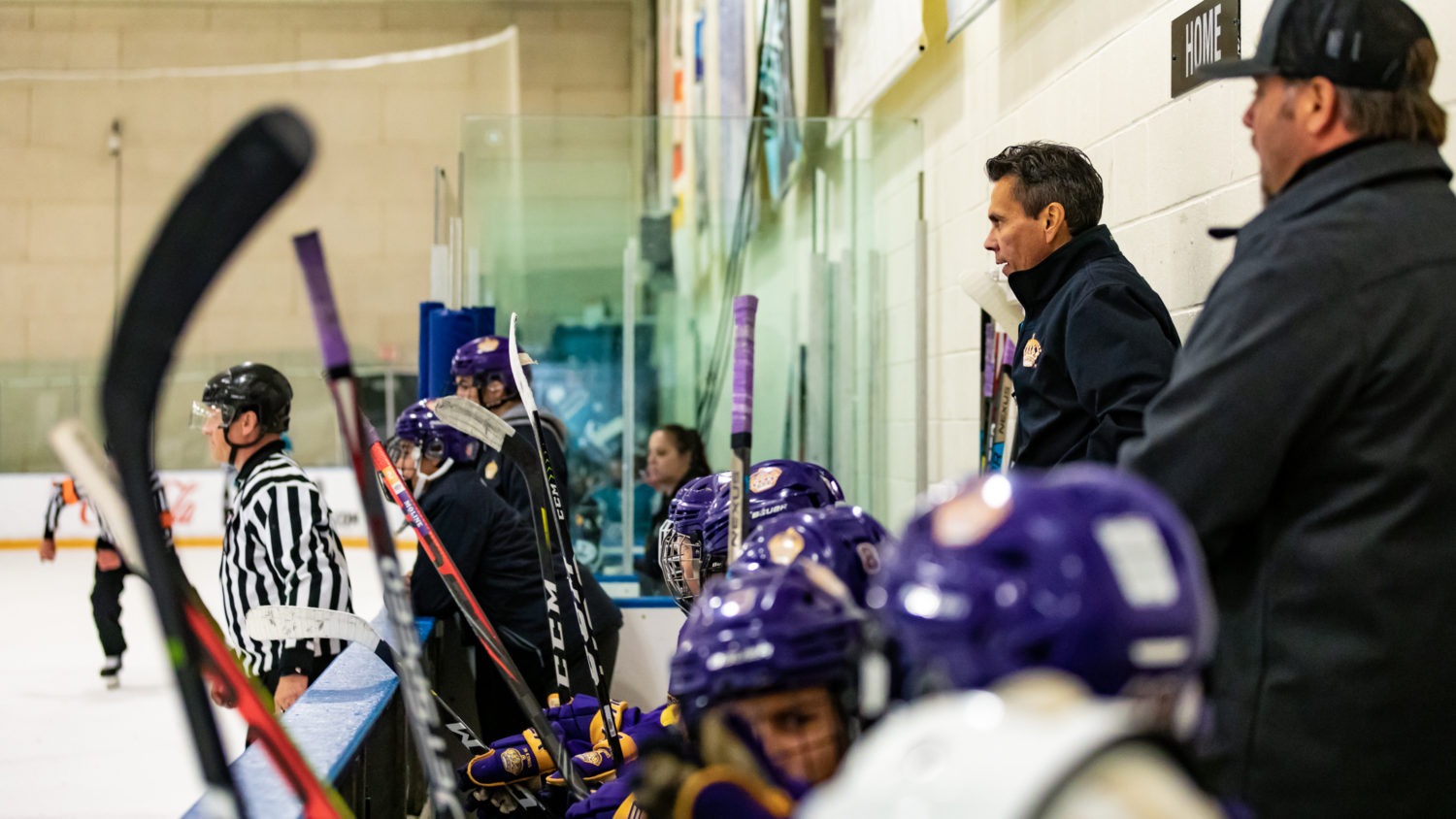
Rules for Blog Commenting
Repeated violations of the blog rules will result in site bans, commensurate with the nature and number of offenses.
Please flag any comments that violate the site rules for moderation. For immediate problems regarding problematic posts, please email zdooley@lakings.com.